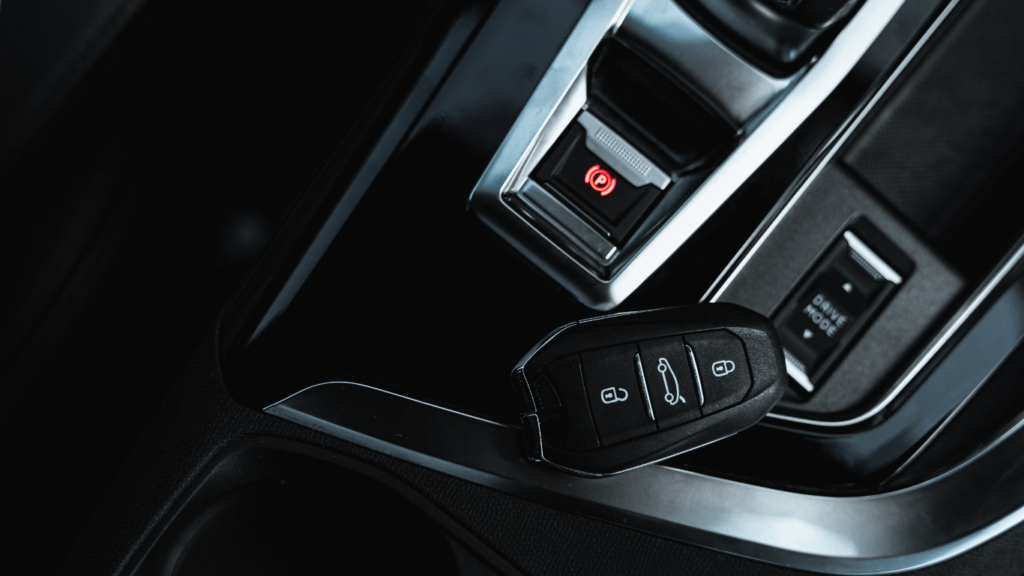Understanding Keyless Entry and Start Systems
Keyless entry and start systems have revolutionized vehicle access and ignition, making driving more convenient and secure. By eliminating the need for traditional keys, these systems offer a seamless experience.
What Are Keyless Entry and Start Systems?
Keyless entry systems allow you to lock, unlock, and start your vehicle without using a physical key. These systems typically use a fob or a smartphone app to communicate with your car. Keyless start systems enable you to start the engine with the push of a button, given the fob is inside the vehicle. Both systems enhance security and convenience by using advanced encryption.
Brief History of Keyless Technology
Keyless technology began in the 1980s with remote keyless entry (RKE) systems. These early models used radio frequency signals to unlock car doors from a distance. In the early 2000s, keyless start systems emerged, allowing drivers to start their vehicles without inserting a key. Recently, innovations like biometric authentication and smartphone integration have further advanced these technologies.
Latest Innovations in Keyless Entry
The latest advancements in keyless entry systems are revolutionizing vehicle access and ignition. Significant innovations include biometric authentication, smartphone integration, and remote start capabilities.
Biometric Authentication
Biometric authentication enhances vehicle security by using unique physical traits. Fingerprint scanners and facial recognition systems, for instance, are now integrated into keyless entry. Mercedes-Benz introduced its first biometric vehicle access model in 2018, combining fingerprint and facial recognition technologies. Tesla also offers facial recognition via its app, ensuring only authorized users can start the vehicle.
Smartphone Integration and Apps
Smartphone integration allows drivers to control their vehicles more conveniently. Various automakers, including BMW and Audi, support apps enabling drivers to lock, unlock, and start cars through their smartphones. Apple’s CarKey extends this functionality, integrating with iPhones and Apple Watches. Encryption protocols in these apps ensure that data transmission remains secure, adding a layer of protection against unauthorized access.
Remote Start and Access
Remote start and access technologies let drivers control vehicles from a distance. FordPass and Chevy’s MyLink exemplify such advancements. These apps enable users to start engines, adjust climate controls, and even locate their vehicles remotely. Advanced GPS functionalities ensure that these features operate smoothly, optimizing convenience and enhancing user experience.
These innovations make automotive access more efficient and secure.
Security Aspects of Keyless Systems

Keyless entry and start systems offer significant convenience, but they also pose unique security challenges. Recent innovations in security measures aim to address these vulnerabilities.
Common Security Concerns
Several security concerns arise with keyless systems. Relay attacks, for example, involve thieves using devices to extend the signal from a key fob, tricking the vehicle into unlocking and starting. According to the National Insurance Crime Bureau (NICB), relay attacks have increased by 50% since 2018. Another issue is signal jamming, where criminals block the signal from the key fob to the car, preventing the vehicle from locking. Additionally, code grabbing attacks involve intercepting and replaying the signal from the fob to gain unauthorized access.
Innovations in Security Measures
To combat these issues, manufacturers are integrating advanced security features. One such innovation is encryption, which enhances data protection between the key fob and vehicle. Another measure is the use of motion sensors in key fobs, which deactivate the signal when the fob is stationary for a prolonged period. Companies like BMW and Tesla employ ultra-wideband (UWB) technology, which offers more precise location tracking to prevent relay attacks. Biometric authentication, including fingerprint recognition and facial recognition, adds another layer of security. These innovations collectively bolster the security of keyless systems, making vehicles more resistant to unauthorized access.
User Experience and Convenience
Keyless entry and start systems are changing the way we interact with our vehicles, emphasizing simplicity and efficiency.
Ease of Use
Drivers operate keyless systems with minimal effort. Touch sensors or proximity detectors enable unlocking doors just by approaching the vehicle. Once inside, a push-button start eliminates the need for a physical key. For example, with Tesla’s smartphone app, users unlock and start the vehicle without handling a key fob. This seamless interaction saves time and reduces hassle, especially in inclement weather or when carrying items.
Advantages Over Traditional Systems
Keyless entry and start systems present significant benefits compared to traditional keys. Enhanced security tops the list, as unique identifiers like biometric data minimize theft risks. Convenience scales up, with smartphone integration allowing remote access, exemplified by Apple’s CarKey letting users unlock cars via iPhone or Apple Watch. Additionally, remote start capabilities optimize comfort by pre-conditioning the interior temperature, creating a better initial driving experience. These advantages collectively streamline vehicle operation and elevate user experience.
Leading Brands and Models
Keyless entry and start systems have evolved significantly, and several brands stand out for their innovative approaches.
Top Picks in Keyless Entry Systems
Several brands feature prominently in the keyless entry market:
- Tesla: Tesla’s keyless systems, integrating smartphone functionality and biometric authentication like facial recognition, set benchmarks for innovation.
- Mercedes-Benz: Known for biometric vehicle access, Mercedes-Benz’s systems enhance security using unique physical traits, like fingerprints.
- BMW: BMW’s digital key technology allows seamless integration with smartphones, letting users unlock, start, and control their cars through a user-friendly app.
- Audi: Audi combines smartphone integration with dedicated apps, enabling remote access and enhanced security features for a superior user experience.
- Kia: Kia’s Smart Key system, offering remote start and customizable profiles, caters to diverse user preferences and enhances overall convenience.
Customer Reviews and Ratings
The market’s leading brands receive varied feedback from users:
- Tesla: Customers appreciate Tesla’s seamless integration and advanced security, although occasional app glitches get mentioned.
- Mercedes-Benz: Users praise the robustness of biometric access but highlight a learning curve for initial setup.
- BMW: BMW’s digital key system gets high ratings for ease of use and reliability, though some note compatibility issues with older smartphone models.
- Audi: Users find Audi’s system intuitive and efficient. However, they sometimes mention concerns about over-the-air software updates affecting functionality.
- Kia: Kia’s Smart Key system generally receives positive feedback for its remote start and customization features, with occasional reports of range limitations.




